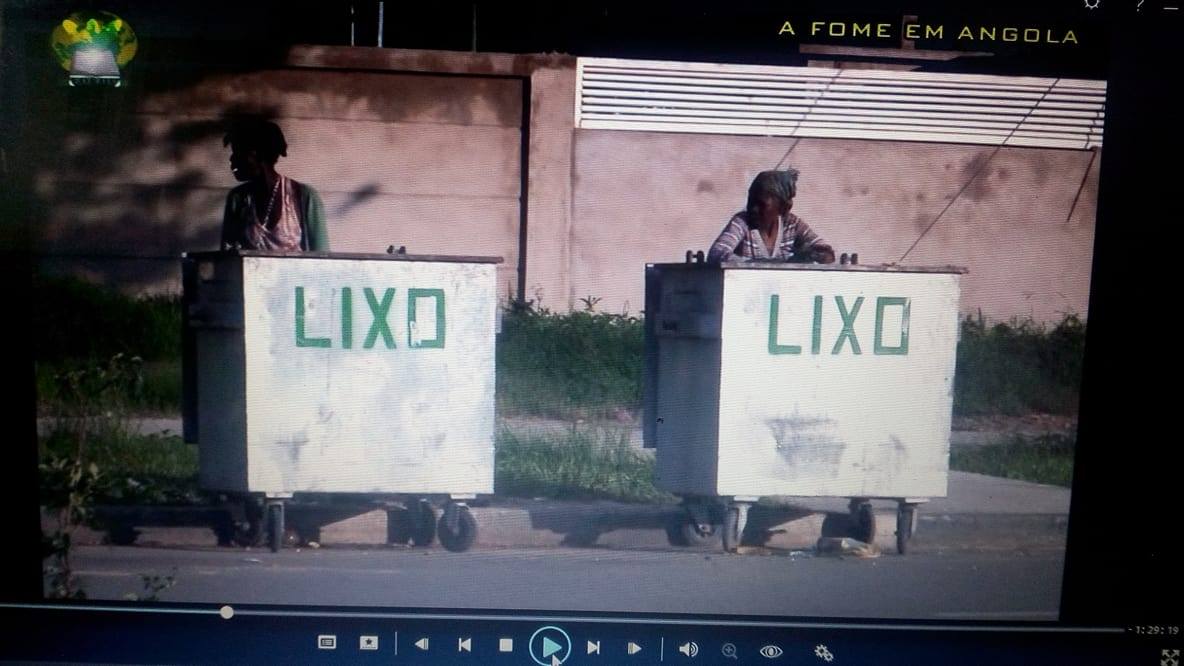An interview given by the President of Angola João Lourenço to RTP, Portugal’s public television channel, in which he stated that there was no hunger in his country, caused some outrage among citizens.
During the 30-minute interview broadcast on 4 March, the Portuguese journalist of RTP África referred to a UNICEF report which stated people were dying of hunger in Angola. Lourenço then rejected the existence of starvation in the country, while admitting that there was malnutrition. He said:
A nossa luta é lutar para reduzir os índices de pobreza, devido aos longos anos de conflito armado. Hoje há oferta de bens alimentares em Angola, não se pode dizer que existe hoje fome em Angola, é uma questão de alguma má nutrição.
Our struggle is to reduce the rates of poverty, owing to the long years of armed conflict. Today there is a supply of food in Angola, one cannot say that today there is [serious] hunger in Angola, it is a question of some malnutrition.
President João Lourenço said this just before the visit to Angola of Portuguese President Marcelo Rebelo de Sousa, and a few days before a Catholic priest and human rights activist criticized the death of Angolans from hunger in a region suffering from drought.
The activist Manuel Mapanda, better known as Dago Nível, questioned the President’s comments:
Como é que o senhor vai dizer que não existe fome em Angola? Não leu a Denúncia do padre Jacinto Wacussanga sobre a morte de um Angolano por fome? Será que nos Gambos e no Curoca já não há fome? Assim que Jlo assumiu a presidência a maioria dos Angolanos passou a ter a cesta básica, e a fome foi eliminada?
How is the gentleman going to say that hunger does not exist in Angola? Did he not read the criticism of Father Jacinto Wacussanga about the death of an Angolan from hunger? Does it mean that in Gambos and Curoca there is now no hunger? As soon as Jlo [João Lourenço] assumed the presidency the majority of Angolans got basic essential goods, and hunger was eliminated?
During the unfortunate interview, the Angolan head of state also made clear his intention to combat corruption, which is part of the party's electoral programme:
Ninguém pode garantir que daqui para a frente não haverá corrupção e, que não haverá corruptos, mas que não ficarão impunes tal como sempre foi. Não haverá mais intocáveis, segundo João Lourenço. Esse tempo ficou para trás.
Nobody can guarantee that from this moment onwards there will be no corruption and that there will be no corrupt people, but that they will not remain unpunished. There will be no more untouchables, according to João Lourenço. That time is behind us.
In 2018, the Regional Forum for University Development (FORDU), a civic association in the field of education headquartered in southern Angola, produced a documentary (with no online version) entitled “Angola, a country at risk”. It highlights the high number of people searching for food in bins, both in the urban centre of Huambo province, the documentary focus, and in the country’s capital Luanda.

Screengrabs from the documentary, available only on DVD | Photo of the author, Simão Hossi — used with permission
On JM. Notícias, a Facebook page dedicated to sharing news, there was a clear criticism of the president’s remarks:
Precisamos reconhecer que ainda há muita gente em Angola vivendo á [sic] margem da sociedade, problema que dificilmente se resolverá se não haver uma promoção de programas de inclusão social credíveis, onde é cobrado e prestado contas. E não com este nascer de uma nova elite de gatunos tipo quem não se safou no outro tempo, que aproveite á [sic] brecha agora em que o artista principal e financeiro da nação é o J.Lourenço.
Olha que os principais desafios estão ai mesmo diante dos vossos próprios olhos, em vencer os problemas nas áreas da saúde, educação, habitação, etc, que pelo menos já deveriam dar alguns sinais mesmo que tímidos, mais [sic] nada se vê .
We need to recognize that there are still many people in Angola living at the margins of society, a problem that will be difficult to resolve if there is not a promotion of credible programs of social inclusion, where it is held accountable. And not with this birth of a new elite of crooks who didn’t get away with it before, who take advantage of the opening now where the main protagonist and financier of the nation is J.Lourenço.
Look at what the main challenges are right in front of your eyes, to overcome problems in the areas of health, education, housing, etc., which should at least already be showing some signs even if slight, but nothing can be seen







